
In October 1562, English merchant John Hawkins set sail from Plymouth for the West African coast. Having heard of the great profits to be made from capturing people there and selling them in the Caribbean, he filled his ships with enslaved Africans - and became the first known Briton to profit from the transatlantic slave trade. Over the following three centuries, some 12 million Africans were forcibly transported.
During Jane Austen's lifetime, abolition and slavery became an incredibly important moral, political and social issue, intertwined with various aspects of life in Britain. Indeed, her father, Reverend George Austen, was co-trustee of a marriage settlement that included a responsibility for dispersing the property of a plantation and its profits.
Austen's novels feature several allusions to slavery. In Mansfield Park, the wealthy Bertram family owns estates in Antigua, and the name of the titular country house is a nod to the first Earl of Mansfield, Lord Chief Justice from 1756 to 1788. He ruled in significant cases that helped promote the notion of the illegality of slavery in England. In 1772, he ruled that it was unlawful for Charles Stewart, who had purchased an African named James Somerset in Virginia and then brought him to England, to forcibly deport that man to slavery in the Americas. Somerset's lawyer was Granville Sharp, an influential anti-slavery campaigner and scholar. Such rulings bolstered the abolition movement in a period marked by uprisings by enslaved people, such as the Haitian Revolution led by Toussaint L'Ouverture from 1791 to 1804, and the dynamic actions of campaigners such as Sharp.
FORCES FOR GOOD
This story is from the October 2023 edition of BBC History Revealed.
Start your 7-day Magzter GOLD free trial to access thousands of curated premium stories, and 9,000+ magazines and newspapers.
Already a subscriber ? Sign In
This story is from the October 2023 edition of BBC History Revealed.
Start your 7-day Magzter GOLD free trial to access thousands of curated premium stories, and 9,000+ magazines and newspapers.
Already a subscriber? Sign In
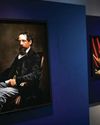
'Dickens's evocation of the fears, excitement and confusion of childhood is peerless'
DR LEE JACKSON ON WHY CHARLES DICKENS REMAINS RELEVANT TODAY
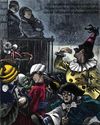
THE AUTHOR GOES ABROAD
Dickens expanded his horizons and boosted his fan-base by venturing overseas - but global fame came with a cost
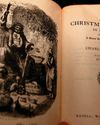
REVIVING THE FESTIVE SPIRIT
A Christmas Carol wasn't just a bestseller - it changed the way that Britons chose to mark the festive season
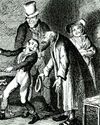
GIVING THE POOR A VOICE
From Hard Times to Oliver Twist, Charles Dickens used his pen to help illuminate the lives of the less fortunate
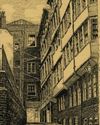
A JOURNEY THROUGH DICKENS'S LONDON
The works of Charles Dickens are synonymous with visions of Victorian London. We talk to Dr Lee Jackson about the author's love of the capital, and the locations that most inspired him
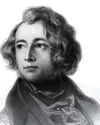
EXCEEDING EXPECTATIONS
Dr Lee Jackson chronicles Charles Dickens's journey from down-at-luck teenager to titan of Victorian literature

GIFTS, TREES & FEASTING
We take a journey through the photo archives to reveal how Christmas and its many traditions have been celebrated over the years - and around the world
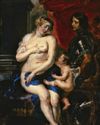
WHAT GREAT PAINTINGS SAY
We explore the story behind an allegorical painting that celebrates the triumph of love over hate, peace over war
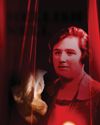
HELLISH NELL
Malcolm Gaskill delves into the life of Helen Duncan - the fraudulent Scottish medium whose ectoplasm-filled seances saw her ending up on the wrong side of the law

7 THINGS YOU (PROBABLY) DIDN'T KNOW ABOUT THE WHITE HOUSE
Presidential historian Dr Lindsay M Chervinsky reveals some of the most surprising facts about the world-famous US residence